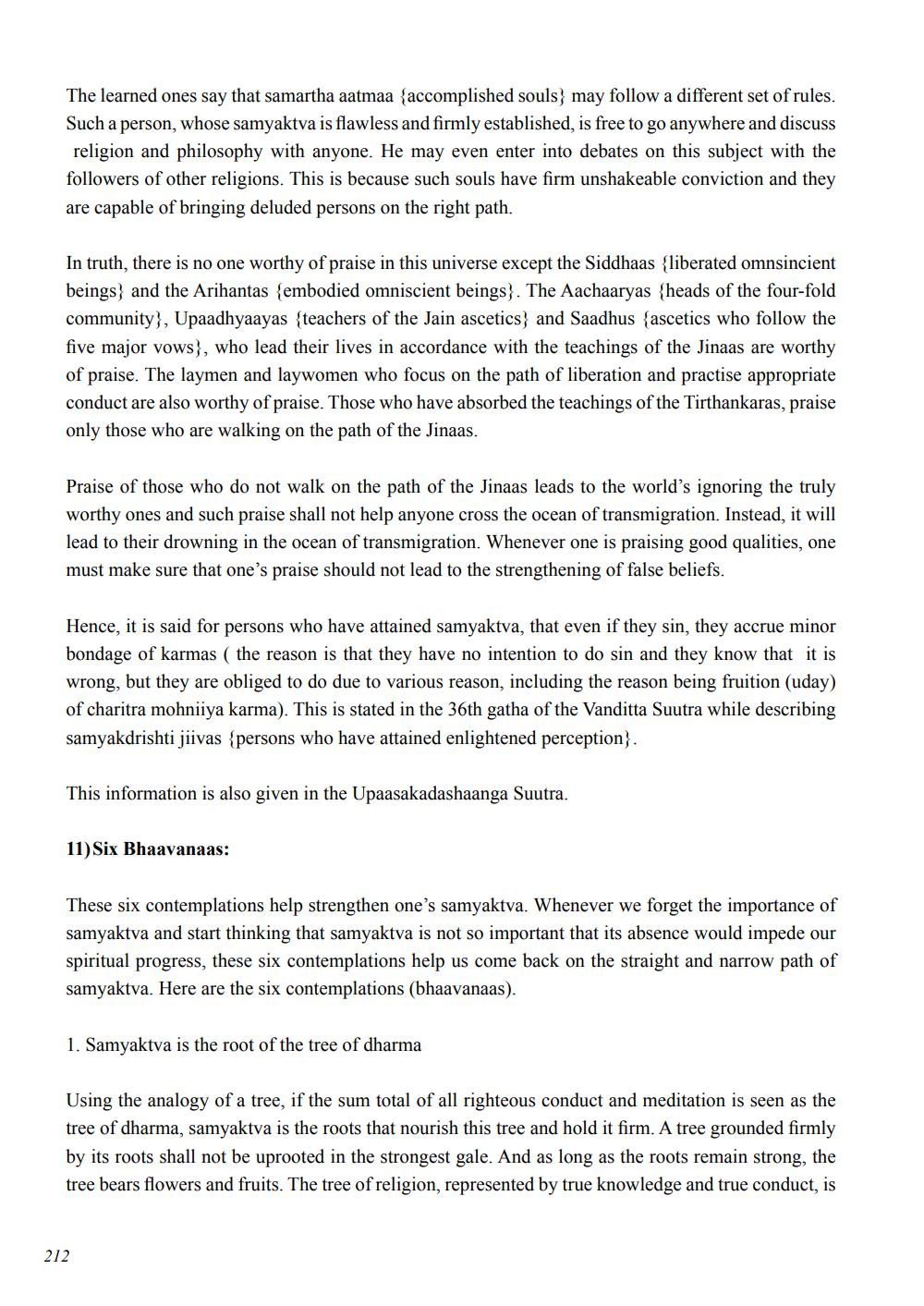________________
The learned ones say that samartha aatmaa (accomplished souls) may follow a different set of rules. Such a person, whose samyaktva is flawless and firmly established, is free to go anywhere and discuss religion and philosophy with anyone. He may even enter into debates on this subject with the followers of other religions. This is because such souls have firm unshakeable conviction and they are capable of bringing deluded persons on the right path.
In truth, there is no one worthy of praise in this universe except the Siddhaas (liberated omnsincient beings) and the Arihantas (embodied omniscient beings). The Aachaaryas (heads of the four-fold community}, Upaadhyaayas (teachers of the Jain ascetics) and Saadhus (ascetics who follow the five major vows), who lead their lives in accordance with the teachings of the Jinaas are worthy of praise. The laymen and laywomen who focus on the path of liberation and practise appropriate conduct are also worthy of praise. Those who have absorbed the teachings of the Tirthankaras, praise only those who are walking on the path of the Jinaas.
Praise of those who do not walk on the path of the Jinaas leads to the world's ignoring the truly worthy ones and such praise shall not help anyone cross the ocean of transmigration. Instead, it will lead to their drowning in the ocean of transmigration. Whenever one is praising good qualities, one must make sure that one's praise should not lead to the strengthening of false beliefs.
Hence, it is said for persons who have attained samyaktva, that even if they sin, they accrue minor bondage of karmas (the reason is that they have no intention to do sin and they know that it is wrong, but they are obliged to do due to various reason, including the reason being fruition (uday) of charitra mohniiya karma). This is stated in the 36th gatha of the Vanditta Suutra while describing samyakdrishti jiivas (persons who have attained enlightened perception}.
This information is also given in the Upaasakadashaanga Suutra.
11)Six Bhaavanaas:
These six contemplations help strengthen one's samyaktva. Whenever we forget the importance of samyaktva and start thinking that samyaktva is not so important that its absence would impede our spiritual progress, these six contemplations help us come back on the straight and narrow path of samyaktva. Here are the six contemplations (bhaavanaas).
1. Samyaktva is the root of the tree of dharma
Using the analogy of a tree, if the sum total of all righteous conduct and meditation is seen as the tree of dharma, samyaktva is the roots that nourish this tree and hold it firm. A tree grounded firmly by its roots shall not be uprooted in the strongest gale. And as long as the roots remain strong, the tree bears flowers and fruits. The tree of religion, represented by true knowledge and true conduct, is
212




